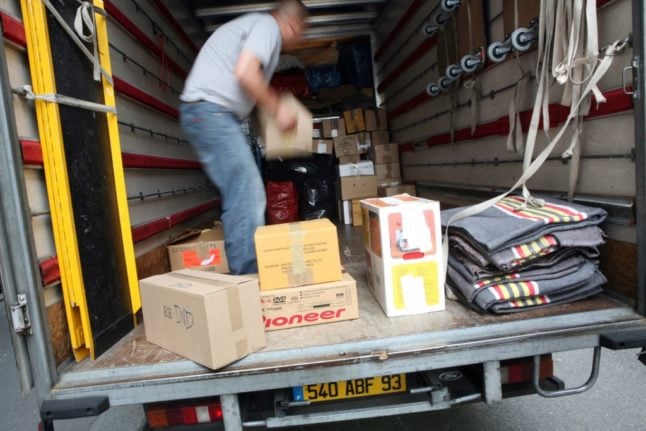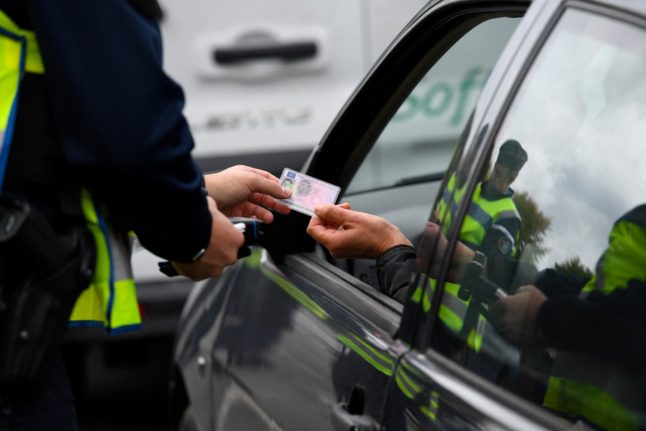Moving house within the EU is pretty simple – load up a van with stuff and cross the border. But since the UK left the EU, bringing any goods from the UK to France has become a lot more complicated.
So what’s the deal if either you want to move and bring all your possessions over, or you just want to shift some furniture or household items to a second home in France?
Well, there are quite a few things to consider.
Banned items
Firstly certain items are banned altogether. These are mostly explosives and certain types of weapon, which hopefully won’t feature in many people’s removal vans, but there are some breeds of dog that are illegal in France. Find the full banned list HERE.
Restricted items
Then there are certain items that cannot be imported without extra paperwork such as veterinary certificates.
This includes a lot of different food products so if you’re planning on emptying your kitchen cupboards to bring, check very carefully that none of the foodstuffs are on the restricted list. It also covers flowers and plants, if you were planning on bringing garden supplies.
READ ALSO Bovril, tea and ham sandwiches . . . what can you bring from the UK to France?
Alcohol and tobacco
There are limits on the amount of alcohol and tobacco you can bring in to France from a non-EU country – check HERE.
Cash
If you’re carrying more than €10,000 in cash you need to declare this to customs officers when you cross the border.
Pets
The EU Pet Passport no longer covers any trips from the UK for dogs, cats or ferrets – find out the new protocol HERE.
Household goods
As well as limits on certain types of items there is also a rule on the overall value of the items you are bringing with you – specifically you need to declare and pay duty on items whose total value is more than €430.
Obviously most people’s worldly goods will be worth more than that in total, but there is an exception for people moving to France.
The rules say that you are exempt from paying duty if you are moving to France and bringing your household goods which you have owned for more than six months, and you have been living in the UK or another non-EU country for at least the preceding 12 months.
There are some conditions on this, however.
The rules as published apply to all arrivals from outside the EU, many of which (such as Americans moving to France) are handled by commercial shipping companies by air or sea.
If you’re using a commercial moving company they will likely ask you for the paperwork whereas if you’re loading your stuff into a van and driving yourself things could be less strict. As this is a new area it’s difficult to say exactly how stringent checks will be. As ever with items connected to French bureaucracy, we advise having as much paperwork with you as possible to avoid problems.
You should have:
- Two copies of a detailed inventory of your items with their value in euros
- Receipts for any items published in the last six months
- Documentation showing your right to residency in France, such as a visa, carte de séjour or the passport of an EU country and documentation showing your new address (eg house purchase deeds or paperwork)
- If you’re importing high value items you may also need the Cerfa 10070 form, these are generally defined as objects listed separately on your household insurance.
You need to transport goods within 12 months of the date of your change of residence – so if you want to make several trips to bring items over then that’s fine, but the inventory you present on your first trip must include all the items you intend to import.
You are not allowed to sell any items that you have imported duty-free for the first 12 months of your stay in France.
Full details on the French customs website.
Second home owners
So what about if you’re not moving, but you want to bring over items for your second home in France?
Bad news here, French customs states that: “Goods intended to furnish a secondary residence are no longer admitted free of customs duty and VAT.”
So you can still bring items over, but if they are worth more than €430 you will have to pay customs duty on them.
You will need a detailed inventory of the items you are bringing and their value, so that customs agents can calculate the duty that you owe.



 Please whitelist us to continue reading.
Please whitelist us to continue reading.
We have lived in France for 16 years but expect to return to UK soon where we have a small flat. We will need to take several van loads of house furnitire etc back.
It is all at least a year old and mostly much older. What are implications when crossing border France/UK?
Sorry this is not an answer only an addition to your question. I need to bring back to London about 40 pieces of my own art work, mainly flat picture objects, no value that I’m aware of, and wonder if there are any limits, rules or problems relevant to this? I’m also looking for someone to do the transport as I don’t have a car…!!!
We bought some outdoor furniture last summer in the uk for our apartment in France (2nd home) and obviously have not been able to go due to COVID. Will we still have to pay duty even though it was purchased over 6 months ago
im taking some furniture to France and know i will have to pay the import duty, but i arrive in Spain and drive into France.
So do i fill in French documents even though i will dock in Spain?
Any ideas of where to find out?
Just wondering if anyone reading this can share their experience?
I have had the bulk of my possessions in storage for about 3 years. I was making plans to haul it all across in 2020 (ie before Brexit) but then the pandemic happened.
I’m not worried about paying any customs fees as I’ve owned everything for a long time. What I am wondering is how “detailed” they expect the inventory to be. Will “a box of cutlery” be sufficient? Or will I have to itemise everything ie 12 spoons, 12 forks and 12 knives?
So first visit back to our second home in NOrmandy since pre covid and pre-brexit implemented. Confused to say the least! Can we still take things like our carpet washer over and diy gear which we will be bringing back with us……
Would love to hear any recent similar experiences please??
Hi Joandy123, we are in I believe the same situation as yourselves, we recently travelled over and took some kitchen units and were threatened with a 1000 euro fine, but they eventually let us off. Whilst we appreciate that maybe we will have to purchase materials in France, we would prefer to bring over tools etc that we need and then bring them back. However, we are finding it quite difficult to find out if we will be able to do so – have you had any luck finding out what you can do? Heather
A credible and continuous company in more work and progress
https://fawesil.com/%d8%b4%d8%b1%d9%83%d8%a9-%d9%86%d9%82%d9%84-%d8%b9%d9%81%d8%b4-%d8%a8%d8%a7%d9%84%d9%85%d8%af%d9%8a%d9%86%d8%a9-%d8%a7%d9%84%d9%85%d9%86%d9%88%d8%b1%d8%a9/